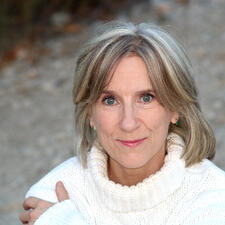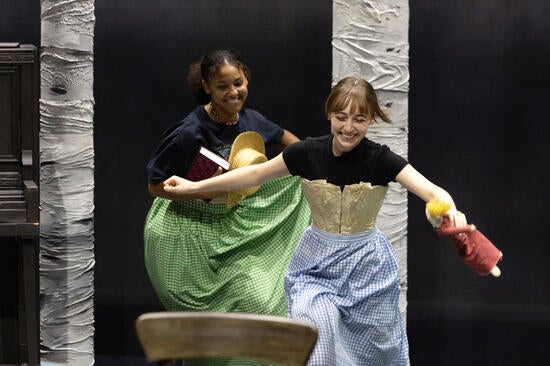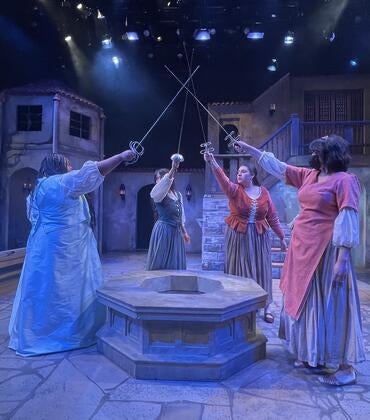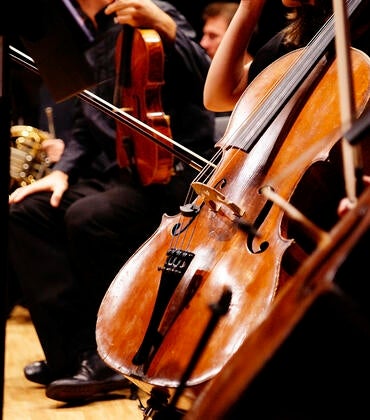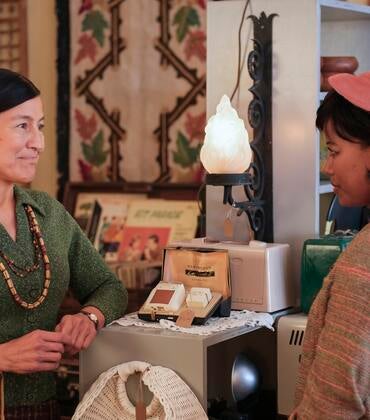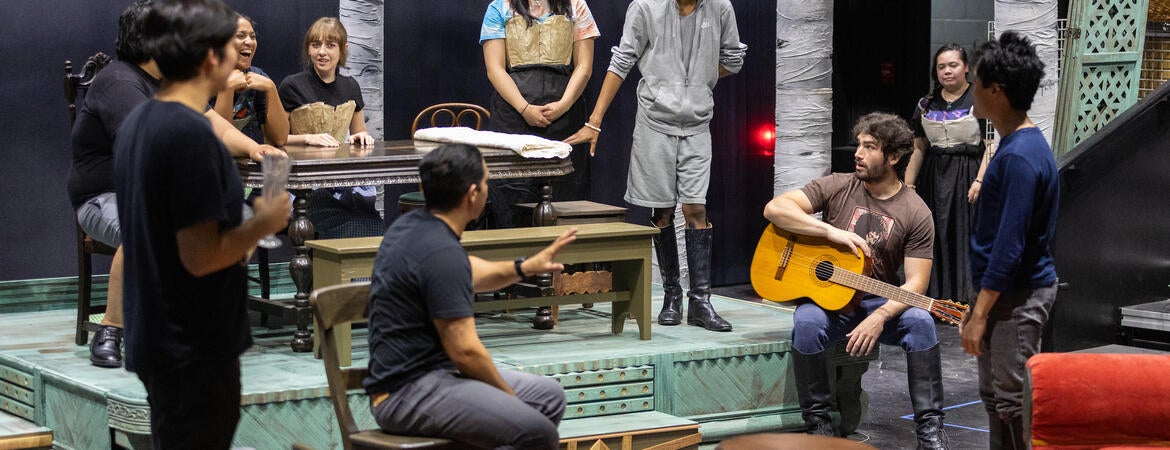
UCR’s Department of Theatre, Film, and Digital Production will present Anton Chekhov’s “Three Sisters” May 9-18 at the ARTS Studio Theatre.
The story unfolds in a provincial Russian town during three-and-a-half years in the lives of three sisters: the schoolteacher Olga (28), the unhappily married Masha (23), and idealistic Irina (20). It begins on Irina’s name day, a religious celebration based on a person’s given name, and the one-year anniversary of the death of their father, who had been a colonel in the army. Weary of living in the small town, the sisters long for the city of their childhood — Moscow. Irina believes true love awaits her there as the others assume their lives would be happier in the bustle and opportunity of Moscow. The boredom of their lives is broken when an Imperial Russian Army artillery battery is garrisoned in the town. What follows are affairs, duels, betrayals, and class struggles, but also comedic moments in what is considered one of Chekhov’s four great plays.
Because this is a new translation from director and UCR faculty member Bella Merlin and her husband Miles Anderson, the audience can expect a new interpretation on this classic tragicomedy. The synopsis on the UCR website hints to this: “Chekhov's ‘comic agony’ finds wistful playfulness in this new iteration by the cast and creative team.”
The three student actors playing the sisters create in the first act a familial atmosphere as they interact on stage. Senior Lena Chin plays Olga, the oldest sister who, after their father’s death, becomes head of the family. She is playful as she reassures Irina and lifts her hopes as she teases the middle sister Masha, played by first year student Aminah Davis-Macias. Davis-Macias brings the subtly of a sister who expresses her contempt and anger through small gestures.
Another first-year student, Juliette Lazard as Irina, is irrepressible on stage and swirls with optimism and a childlike glee. Through them the audience sees and feels their situation as it is set against their nostalgia for Moscow.
The interactions, whether the nuanced reactions between characters or the larger choreography of marching soldiers, falls under the careful eye of director Merlin. Merlin has over 25 years working in theater, film, television, and radio and is an author and college professor of directing and acting. She is grounded in the Stanislavsky method of acting where the actors walk onto the stage as if in the continuum of the character’s life while focusing on the character’s psychological state, reacting to the others on stage realistically as if living in the unfolding moment of lived experience. Coincidently, Chekhov and Stanislavsky were close friends who inspired each other until Chekhov’s untimely death from tuberculosis in 1906.
Another aspect of both Chekhov and Stanislavsky reflected in this production is Merlin’s attention to subtext — what is not said on stage or what is said but has another meaning altogether. A joy for theater goers is understanding something without being told directly; to revel in realizing underlying meaning, the “ah ha!” moments this play has. It is only through the actors we can witness this, and the actors have been encouraged by a director who understands the subtlety of facial expressions and body language to fulfill these unsaid meanings.
Merlin has brought to bear decades of acting experience to create the world of early 20th century Russia, its society, and people, and realized it for us to contemplate in the 21st century. It does speak to Chekhov’s brilliance as a writer, but the best playwriting falls flat without an astute director and capable actors who can transform themselves into people of another era for a contemporary audience who may then see our modern lives in the unfolding action.
